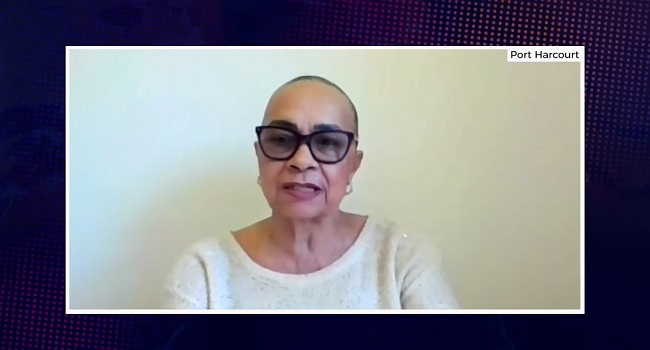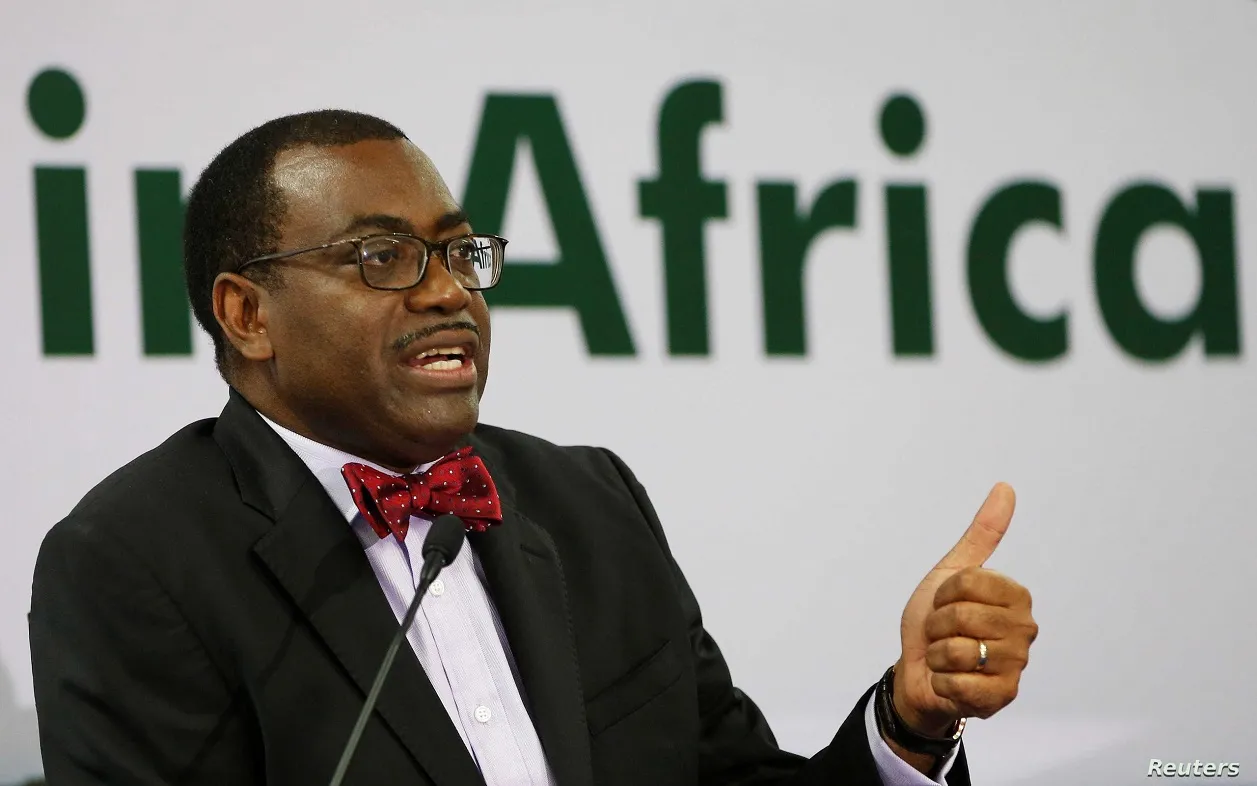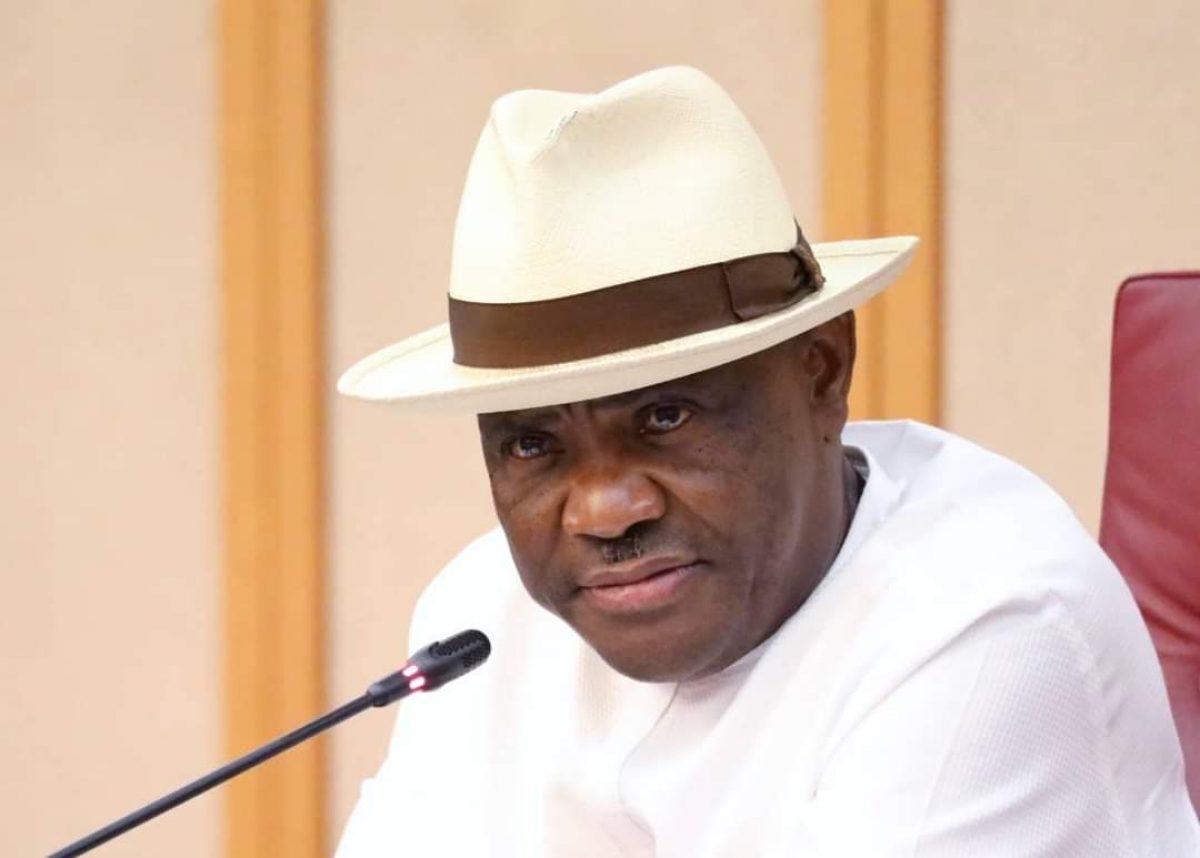Investment
Nigeria Records $10.1b Investment Announcement – Minister

Otunba Adeniyi Adebayo, Minister of Trade and Industry, has disclosed that Nigeria’s economy recorded $10.1billiom investment announcement which was a-100 per cent increase over that of last year.
Adebayo made this known at Lagos International Trade Fair, held at the Tafawa Balewa Square, organised by the Lagos Chamber of Commerce and Industry (LCCI).
According to him, “The year 2020 was challenging for all economies but Nigeria is coming back strong. In the first half of this year, the investment announcement was $10.1 billion.
“And increase of 100 per cent of the year 2020. Investors from Europe, China, Morocco and the United Kingdom are making strong commitments and this administration is working tirelessly to ensure these commitments turn into projects that positively affect our nation.
“To push our trade activities and prospects, we must support locally manufactured goods. It is in this regard our government signed Executive Order 003 in 2017 and several campaigns have been launched to create necessary awareness and momentum.
“Once again, I want to use this medium to call for collaboration between Federal Government agencies and State governments towards this end.
“The cooperation of all of us as patriotic Nigeria as well as that of our friends around the world will be required to achieve our targets including I want to extend my appreciation to the members of LCCI for their consistent coordination of such an event annually.”
The minister added that the trade plays a significant role in the economic growth of a nation intent on building wealth and improving its foreign reserves position.
Adebayo said: “Trade is central to ending poverty, raising peoples’ standards of living, accelerating economic growth and improving productivity. It is a key driver of GDP growth, and, of course, employment creation.”
He noted that the relevance of Lagos hosting the trade fair is rather obvious. Aside being Nigeria’s financial hub, it is also home to the major Exchanges; the Nigeria Exchange Plc (NGX Plc), Financial Markets Dealers Quotations (FMDQ), National Association of Securities Dealers (NASD) and the Lagos Commodities and Futures Exchange (LCFE).
The minister also said Lagos state also accounts for over 80 per cent of the country’s foreign trade flows and generates over 50 per cent of Nigeria’s port revenue.
Africa
Customs hands over illicit drugs worth N117.59m to NDLEA

The Nigeria Customs Service (NCS), Ogun Area 1 Command, has handed over illicit drugs worth N117.59 million to the National Drug Law Enforcement Agency (NDLEA).
The Comptroller of the command, Mr James Ojo, disclosed this during the handing over of the drugs to Mr Olusegun Adeyeye, the Commander of NDLEA, Idiroko Special Area Command, in Abeokuta, Ogun, on Friday.
Ojo said the customs handed over the seized cannabis and tramadol tablets to the Idiroko Special Command for further investigation in line with the standard operating procedures and inter-agency collaboration.
He said the illicit drugs were seized in various strategic locations between January and November 21, 2024, in Ogun State.
He added that the illicit drugs were abandoned at various locations, including the Abeokuta axis, the Agbawo/Igankoto area of Yewa North Local Government Area, and Imeko Afton axis.
Ojo said that the seizure of the cannabis sativa and tramaling tablets, another brand of tramadol, was made possible through credible intelligence and strategic operations of the customs personnel.
“The successful interception of these dangerous substances would not have been possible without the robust collaboration and support from our intelligence units, local informants and sister agencies.
“These landmark operations are testament to the unwavering dedication of the NCS to safeguard the health and well-being of our citizens and uphold the rule of law,” he said.
He said the seizures comprised 403 sacks and 6,504 parcels, weighing 7,217.7 kg and 362 packs of tramaling tablets of 225mg each, with a total Duty Paid Value of N117,587,405,00.
He described the height of illicit drugs smuggling in the recent time as worrisome.
This, he said, underscores the severity of drug trafficking within the borders.
“Between Oct. 13 and Nov. 12 alone, operatives intercepted a total of 1,373 parcels of cannabis sativa, weighing 1,337kg and 362 packs of tramaling tablets of 225mg each,” he said.
Ojo said the seizures had disrupted the supply chain of illicit drugs, thereby mitigating the risks those substances posed to the youth, families and communities.
He lauded the synergy between its command, security agencies and other stakeholders that led to the remarkable achievements.
Ojo also commended the Comptroller General of NCS for creating an enabling environment for the command to achieve the success.
Responding, Adeyeye, applauded the customs for achieving the feat.
Adeyeye pledged to continue to collaborate with the customs to fight against illicit trade and drug trafficking in the state.
Africa
Ann-Kio Briggs Faults Tinubu for Scrapping Niger Delta Ministry

Prominent Niger Delta human rights activist and environmentalist, Ann-Kio Briggs, has criticised President Bola Tinubu’s decision to scrap the Ministry of Niger Delta, describing it as ill-advised and detrimental to the oil-rich region.
Briggs expressed her concerns during an appearance on Inside Sources with Laolu Akande, a socio-political programme aired on Channels Television.
“The Ministry of Niger Delta was created by the late (President Umaru) Yar’Adua. There was a reason for the creation. So, just removing it because the president was advised. I want to believe that he was advised because if he did it by himself, that would be terribly wrong,” she stated.
President Tinubu, in October, dissolved the Ministry of Niger Delta and replaced it with the Ministry of Regional Development, which is tasked with overseeing all regional development commissions, including the Niger Delta Development Commission (NDDC), North-West Development Commission, and North-East Development Commission.
Briggs questioned the rationale behind the restructuring, expressing concerns about its feasibility and implications. “But that’s not going to be the solution because who is going to fund the commissions? Is it the regions because it is called the Regional Development Ministry? Is it the states in the regions? What are the regions because we don’t work with regions right now; we are working with geopolitical zones,” she remarked.
She added, “Are we going back to regionalism? If we are, we have to discuss it. The president can’t decide on his own to restructure Nigeria. If we are restructuring Nigeria, the president alone can’t restructure Nigeria, he has to take my opinion and your opinion into consideration.”
Briggs also decried the longstanding neglect of the Niger Delta despite its significant contributions to Nigeria’s economy since 1958. “The Niger Delta has been developing Nigeria since 1958. We want to use our resources to develop our region; let regions use their resources to develop themselves,” she asserted.
Reflecting on the various bodies established to address the region’s development, Briggs lamented their failure to deliver meaningful progress. She highlighted the Niger Delta Basin Authority, the Oil Mineral Producing Areas Development Commission (OMPADEC), and the NDDC as examples of ineffective interventions.
“NDDC was created by Olusegun Obasanjo…There was OMPADEC before NDDC. OMPADEC was an agency. Before OMPADEC, there was the Basin Authority…These authorities were created to help us. Were we helped by those authorities? No, we were not,” she said.
Briggs further described the NDDC as an “ATM for failed politicians, disgruntled politicians, and politicians that have had their electoral wins taken away from them and given to somebody else.”
Her remarks underscore the deep-seated frustrations in the Niger Delta, where residents continue to advocate for greater control over their resources and improved governance.
Headlines
AfDB mobilises $31bn investment interest

The African Development Bank (AfDB), has drawn 31 billion dollars in investment interest from African and global investors.
In a statement issued by the Communication and External Relations unit of the AfDB, President of the bank, Dr Akinwumi Adesina said this at the 2022 Africa Investment Forum (AIF) Market Days.
The forum ended on Friday.
Adesina commended the forum’s outcomes and the partners’ commitment.
“Despite the challenges, we are not afraid, and neither have we despaired nor lost hope.
“We are excited and committed to a collective goal; accelerating the closure of deals to transform Africa and its investment landscape.”
He said the AIF’s focus was to attract more foreign direct investment to Africa, and ensure the private sector remained the driving force of that transformation.
“The private sector is Africa’s growth accelerator. We must mitigate real and perceived risks and persuade the private sector that investing in Africa is safe,” Adesina said.
Combined with 32.8 billion dollars from the rescheduled 2021 Africa Investment Forum Market Days, the forum has mobilised a total of 63.8 billion dollars of investment interest in 2022.
Islamic Development Bank (IsDB) President, Dr Mohammed Al-Jasser, said the organisation was hopeful that its commitment to the AIF would translate into tangible and measurable outcomes for the benefit of Africa.
Al-Jasser said the IsDB Group was commitment to support transformative African projects, especially those promoting resilience, financial, economic, and social sustainability.
Furthermore, Admassu Tadesse, Trade and Development Bank Group President and Chief Executive, spoke on the value of the “AIF spirit” in doing more to advance and close investments.
Tadesse said: “Notwithstanding ongoing global crises, we have to keep our eye on the ball. We must continue to encourage and enable investment in agriculture and industry, as well as infrastructure.
“Growing our own food and manufacturing more will enable us to trade more. It will lead to less overall greenhouse gas emissions linked to imports from far away.
“In the process also generating more employment and opportunities for our people.”
Also, European Investment Bank President, Werner Hoyer, said the bank was excited to see how the creativity and vision of African innovators were making an impact.
Hoyer said: “Particularly in the area of technology which holds such great potential for Africa’s future”.
Mohan Vivekanandan, Group Executive Origination and Coverage, Development Bank of Southern Africa, said a unique feature of the 2022 forum was that it focused on transactions.
“It’s about the project sponsors, the project developers and how we, as development financiers, help them get their vision implemented to improve the quality of life of Africans.
“And how we promote economic growth, job creation and industrialisation,” Vivekanandan said.
Africa Finance Corporation President and Chief Executive Offcer (CEO), Samaila Zubairu said: “The current global economic challenges indicate the critical need to build Africa’s self-sufficiency by investing in resilient infrastructure.
“Such critical investment is needed to drive Africa’s industrialisation and economic prosperity.”
Moreover, Africa50 CEO Alain Ebobisse said the AIF presented a timely platform to help scale up and speed up investments into Africa.
Ebobisse said attracting new pools of capital into infrastructure would be critical.
“More specifically, Africa’s institutional investors such as pension and sovereign wealth funds must play a critical role and will be the game changers for Africa’s infrastructure development,’ he said.
In addition, Afreximbank President, Benedict Oramah said the AIF reflected the interest and optimism of global investors towards the continent and its opportunities.
“We close, knowing that the AIF, Africa’s largest transactional investment marketplace, continues to be a huge success.
“Moreover, the event serves as a measure of international confidence in Africa’s economic and political development, and the unmatched investment opportunities this is creating,” Oramah said.
Also, the AIF Senior Director, Chinelo Anohu, on her part said, a lot of the successes recorded by the Africa Investment Forum were domiciled in the spirit of the partnership.
Anohu said it was up to the AIF to ensure the continent was “what it ought to be.”
The three-day event, which held in Abidjan, Côte d’Ivoire, attracted the participation of several African heads of states and government.
The event had as theme: “Building Economic Resilience through Sustainable Investments”.
The News Agency of Nigeria (NAN), reports that the AIF platform has mobilised more than over 100 billion dollars in investment interests since its inception in 2018.
-

 Headlines4 years ago
Headlines4 years agoFacebook, Instagram Temporarily Allow Posts on Ukraine War Calling for Violence Against Invading Russians or Putin’s Death
-

 Headlines4 years ago
Headlines4 years agoNigeria, Other West African Countries Facing Worst Food Crisis in 10 Years, Aid Groups Say
-

 Foreign4 years ago
Foreign4 years agoNew York Consulate installs machines for 10-year passport
-

 News1 year ago
News1 year agoZero Trust Architecture in a Remote World: Securing the New Normal
-

 Entertainment3 years ago
Entertainment3 years agoPhyna emerges winner of Big Brother Naija Season 7
-

 Headlines2 years ago
Headlines2 years agoNigeria Customs modernisation project to check extortion of traders
-

 Entertainment2 years ago
Entertainment2 years agoMovie download platform, Netnaija, announces closure
-

 Economy2 years ago
Economy2 years agoWe generated N30.2 bn revenue in three months – Kano NCS Comptroller


















